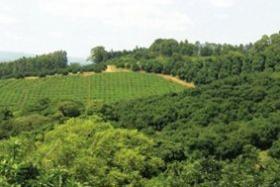
The Mexican state of Michoacán is home to between 30,000ha and 45,000ha of illegal avocado orchards according to a leading academic.
Alberto Gómez Tagle Rojas from the Institute of Research on Natural Resources (Inirena) at the Michoacán University of San Nicolás de Hidalgo estimates that on top of the 150,000ha of registered avocado production in the state, there could be an additional 30 per cent that do have the required permits, many hidden within forests.
Speaking to Mexican news agency Quadratín, Gómez warned that the problem is not confined to Michoacán but also causing deforestation in other states including Jalisco, Colima, Mexico and Morelos.
He noted that the exponential growth in production, from around 3,000ha in 1963 to just under 200,000ha in 2017 was due to a lack of adequate planning and a failure to take into account the damage caused to forest land.
“This is a mistake that Mexico has repeated over and over again –with coffee, sugar cane and corn and now with avocados,” Gómez said.
“The Ministry of Agriculture, Livestock, Rural Development, Fisheries and Food (Sagarpa) saw an opportunity to make a lot of money and invested in programmes to develop production but it failed to take into account the other side of the situation, with the resulting environmental consequences.”
One of the most worrying effects has been the impact on water availability, with deforestation dramatically reducing the number of water-capturing trees like pine trees. This in turn affects weather patterns, altering rainy and dry periods.
“Rainfall has become more concentrated in the summer months (June, July and August), making the other months drier than they once were – it rains the same, but in a shorter period,” Gómez explained.
Studies show that a mature avocado tree consumes the same amount of water that 14 pine trees are capable of capturing.
The academic added that avocado production would increasingly compete with humans for water resources, creating a “delicate situation”.



